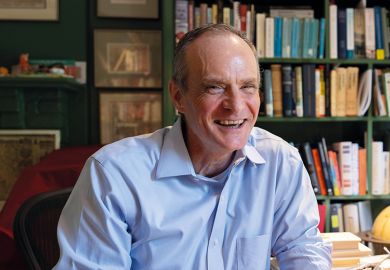When I was last in England, I watched a prostitute on breakfast TV and then I ran into her at Heathrow Airport," Fred was saying.
"Really?" I said perking up a little. "What did you say?" "I said she should accept Jesus Christ as her Lord and Saviour," he said with a self-deprecating laugh. "She didn't."
David Boyle, the author of Funny Money , is himself rather like Fred - one of the many idiosyncratic characters who wander inconsequentially through his book. In Boyle's case it is not Christ but "funny money" he wants us to accept as our Lord and Saviour. I haven't.
Funny money , in case you are unacquainted with the term, is alternative money issued by groups of people who dislike government-issued tender and wish to use lolly they consider more salubrious. Most prefer to trade in time, rather than pounds or dollars, exchanging a few hours' drain cleaning for a spot of psychotherapy, or whatever.
"Time dollars", as the funny money is generally called, can be traded immediately or stored. In return for three hours' raffia weaving, for example, you pay me three hours' worth of time dollars. These I can then spend, at my leisure, on three hours' snake-charming lessons - as long as I can find a snake-charmer willing to accept payment in time dollars. Not everyone will.
In most places where the funny money game is played they actually print and issue time dollars. In others they keep records of the transactions the participants have carried out, and balance the books. But there are always participants who neglect to spend their time dollars, which creates awkward imbalances - like in the real world.
Put simply, this is old-fashioned barter applied to services rather than goods. Time dollars could not work for goods, though Boyle seems blissfully unaware of it. How many hours would be represented by a packet of fish and chips, let alone a Steinheiser headset?
Funny money evangelists, especially those in the dottier backwaters of the United States through which Boyle traipses, believe that switching from besmirched federal greenbacks to a cleaner kind of filthy lucre will improve the world. Old money, they argue, has got us into a frightful mess: national debt, inflation and a host of other distasteful phenomena. Their new geld - though certain minor details have yet to be ironed out - will avoid all those villainies, because it will always represent personal input. No hours worked - no time dollars created.
And creating local currencies based on personal services among parochial groups unarguably offers benefits. It promotes social cohesion and provides the retired and the poor with a reasonably fair way to do odd jobs for each other. (The system is not completely fair - or at least it is not if you give any credence to the value of expertise. An hour of a surgeon's time must surely be worth more than that of a humble road sweeper.) Boyle rejects such criticisms, particularly if they come from "the world-weary London intelligentsia" who are unimaginative and unwilling to consider radical new ideas. I am hardly a member of the intelligentsia, but I do not think funny money systems are worth the paper they are amateurishly printed on. They are no way to build either the sewers or the pharmaceutical research companies whose products keep world-weary Londoners like me alive and kicking.
Immediately after asking, in one of his idiosyncratic asides, "How did I get to be 38 without getting married?" Boyle cheerfully asks of himself, "What on earth am I doing searching for a new source of wealth when I hardly understand the City pages of the newspapers?" It is a pertinent question to which I can think of no answer. Some people, he says, are plain unimaginative.
Winston Fletcher is chairman, Bozell UK.
Funny Money: In Search of Alternative Cash
Author - David Boyle
ISBN - 0 00 255947 1
Publisher - HarperCollins
Price - £14.99
Pages - 224
Register to continue
Why register?
- Registration is free and only takes a moment
- Once registered, you can read 3 articles a month
- Sign up for our newsletter
Subscribe
Or subscribe for unlimited access to:
- Unlimited access to news, views, insights & reviews
- Digital editions
- Digital access to THE’s university and college rankings analysis
Already registered or a current subscriber?



